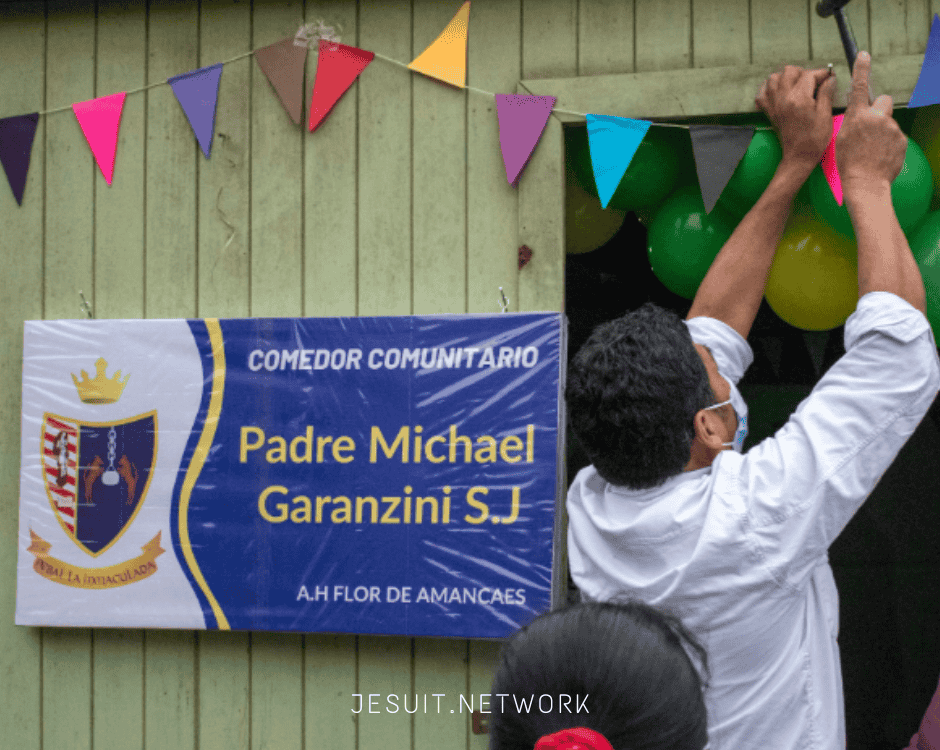Este sitio web utiliza cookies para que podamos ofrecerle la mejor experiencia de usuario posible. La información sobre cookies se almacena en su navegador y realiza funciones como reconocerle cuando vuelve a nuestro sitio web y ayudar a nuestro equipo a comprender qué secciones del sitio web le resultan más interesantes y útiles.
Jesuits and organizational excellence
Today, most managers or leaders know this: an organization or a company is a complex thing. Having a nicely engineered blue print of how things should go is simply not enough. Intervention on an organizational level is tricky business. And contexts are continuously changing.
So, no surprise that the world of organizational experts and academics today is trying to find the ‘Holy Grail’ that can provide us with the right knowledge on how to steer and intervene on an organizational level in such a way that the organizations’ or companies’ performance is maximized and compliant with its mission and goals.
[pullquote align= «left or right»] The Society of Jesus is being perceived as a highly interesting case study since it obviously managed to survive plenty of extraordinary turbulent times. [/pullquote]
As a lay collaborator of the Flemish Province of Jesuits, I recently graduated from the Vlerick Management School in Flanders (Executive Master in Business Administration) with a research project on the organizational design of the Society of Jesus and its aptitude to change.
Together with my promoter, professor Ralf Wetzel, I visited on September 12 and 13, 2014 the 9th EIASM Colloquium in Essen/Germany where we presented the results of my research to an audience of researchers, consultants and Phd-students from all over the world. And guess what: the Society of Jesus is being perceived as a highly interesting case study since it obviously managed to survive plenty of extraordinary turbulent times. Apparently the organization of the Jesuits seems to have a range of unique organizational tools that turn out to be highly suitable and efficient to proceed in a complex and continuously changing world, like the one we face today.
The following (selection of) features of the Society of Jesus as an organization were highlighted during the presentation at the EIASM-colloquium in Essen:
- From the very beginning, the Society of Jesus developed a highly sophisticated mechanism of exchange of information which enables wise and well informed decision making: information goes top down, but also bottom up and cannot be ignored. From the very beginning Jesuits were writing letters to Rome and to each other. Superiors have been travelling a lot, visiting people and places, a provincial normally sees every individual Jesuit once a year and is supposed to listen very carefully and so on… The formal and the informal level in the Society of Jesus are in a continuous dialectic process of writtenness and orality.
Many companies/organizations today struggle a lot with connecting the formal with the informal level.
- Hierarchy and obedience enable strong leadership, but cannot be seen as absolute conditions (standing on their own), since they are always accompanied by a process of individual and collective discernment. The Spiritual Exercises provide each Jesuit with a unique tool to discern and to make healthy decisions on an individual, but also on a more collective (organizational or managerial) level. It enables a Jesuit also to ‘obey’ a superior, but not as a soldier or a robot. The account of conscience enables the person to open their heart to change and tries to find a match between the persons’ own vocation and the mission of the organization that is being guarded by the superior.
Many companies/organizations today struggle with the connection between the mission of the company and the individuals’ ambitions and needs. Human Resources departments are in urgent need for tools that facilitate what is called for instance Organizational Civic Behaviour (OCB). Or they try to find ways to uncover hidden competences, skills and needs of their employees that fit the organizations’ goals and ambitions.
- A strong formation (or indoctrination) and the so called ‘contemplation in action’ enable Jesuits to operate and to improvise in highly complex, alienating and quickly changing environments. Jesuits are not living in monasteries. They deliberately and consciously choose to operate in the world and in many cases at the borders. It means that they often have to sail in choppy waters. The Spiritual Exercises, a strong intellectual formation, the Daily Examen and the so called contemplation in action provide them with a strong compass to continuously discern and to act and react at the appropriate time. They improvise a lot, but always in connection with their mission.
Many companies/organizations today struggle with finding the right orientation and maintaining the connection with their mission since they cannot handle the choppy waters and the quickly changing circumstances they find themselves in.
If you want to know more about the Vlerick Management School, the EIASM-network or my research, go to:
- Vlerick: http://www.vlerick.com/en?gclid=CMefjNLX5cACFQsKwwodYH0Agg
- EIASM: http://www.eiasm.org/r/about-eiasm
- EIASM colloquium on organizational development and change:http://www.eiasm.org/frontoffice/event_announcement.asp?event_id=1037.
- Or contact Erik Vanleeuw: [email protected], 0032 16 39 84 77.
Photo: Jan Boudestein





